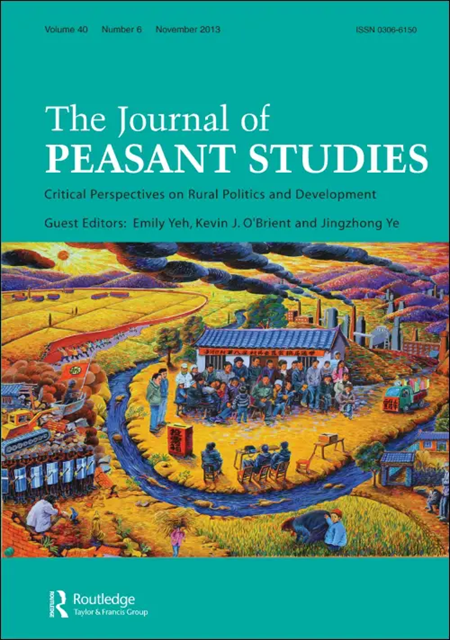State science, risk and agricultural biotechnology: Bt cotton to Bt Brinjal in India
IF 4.8
1区 社会学
Q1 ANTHROPOLOGY
引用次数: 37
Abstract
Agricultural biotechnology has been a project of India's developmental state since 1986, but implementation generated significant conflict. Sequential cases of two crops carrying the same transgene – Bt cotton and Bt brinjal (eggplant/aubergine) – facing the same authorization procedures produced different outcomes. The state science that approved Bt cotton was attacked as biased and dangerously inadequate by opponents, but the technology spread to virtually universal adoption by farmers. Bt aubergine was approved by the same Genetic Engineering Approval Committee (GEAC), but the decision was overruled, the GEAC downgraded and a moratorium imposed on the crop. Resultant conflicts engaged international networks, expanded the domestic arena in which science is contested and instigated restructuring of institutions for governance of genetic engineering. Divergent trajectories of the two crops corresponded to global patterns, but also reflected differences in agro-ecologies and state interests. In Bt cotton, state and cultivator interests dominated precautionary logics; in Bt eggplant, politics of risk dominated questions of agro-economics. The cases illustrate both the inherent vulnerability of science in politics and specific vulnerabilities of science embedded in particular institutions. Differences in institutional specificity of state science matter politically in explaining variation across countries in adoption and rejection of genetically engineered crops.国家科学、风险和农业生物技术:印度的Bt棉花到Bt茄子
自1986年以来,农业生物技术一直是印度发展国家的一个项目,但是实施过程产生了重大冲突。携带相同转基因的两种作物——Bt棉花和Bt茄子(茄子/茄子)——相继面临相同的授权程序,产生了不同的结果。批准Bt棉花的国家科学被反对者抨击为有偏见和危险的不充分,但这项技术几乎被农民普遍采用。Bt茄子也得到了同一个基因工程批准委员会(GEAC)的批准,但该决定被推翻,GEAC降级并暂停了该作物的种植。由此产生的冲突涉及到国际网络,扩大了科学受到争议的国内舞台,并推动了基因工程治理机构的重组。这两种作物的不同轨迹与全球模式相对应,但也反映了农业生态和国家利益的差异。在Bt棉花中,国家和种植者的利益主导了预防逻辑;在Bt茄子中,风险政治主导了农业经济问题。这些案例既说明了科学在政治中的固有脆弱性,也说明了科学在特定制度中的具体脆弱性。国家科学制度特殊性的差异在解释各国在采用和拒绝转基因作物方面的差异方面具有政治意义。
本文章由计算机程序翻译,如有差异,请以英文原文为准。
求助全文
约1分钟内获得全文
求助全文
来源期刊

Journal of Peasant Studies
Multiple-
CiteScore
10.50
自引率
17.60%
发文量
99
期刊介绍:
A leading journal in the field of rural politics and development, The Journal of Peasant Studies (JPS) provokes and promotes critical thinking about social structures, institutions, actors and processes of change in and in relation to the rural world. It fosters inquiry into how agrarian power relations between classes and other social groups are created, understood, contested and transformed. JPS pays special attention to questions of ‘agency’ of marginalized groups in agrarian societies, particularly their autonomy and capacity to interpret – and change – their conditions.
 求助内容:
求助内容: 应助结果提醒方式:
应助结果提醒方式:


